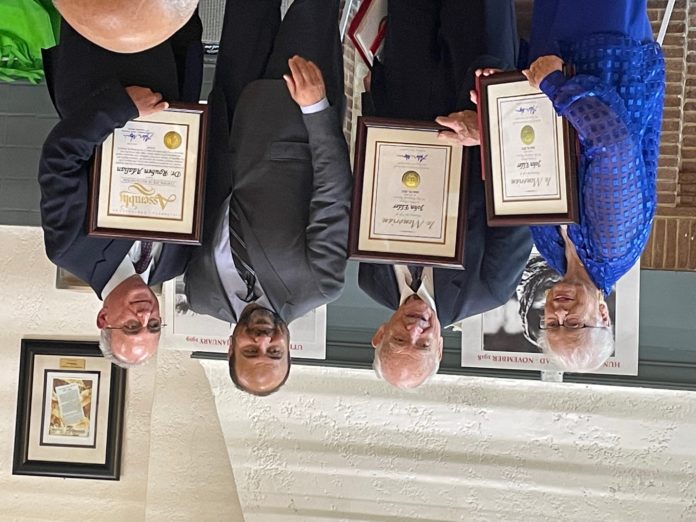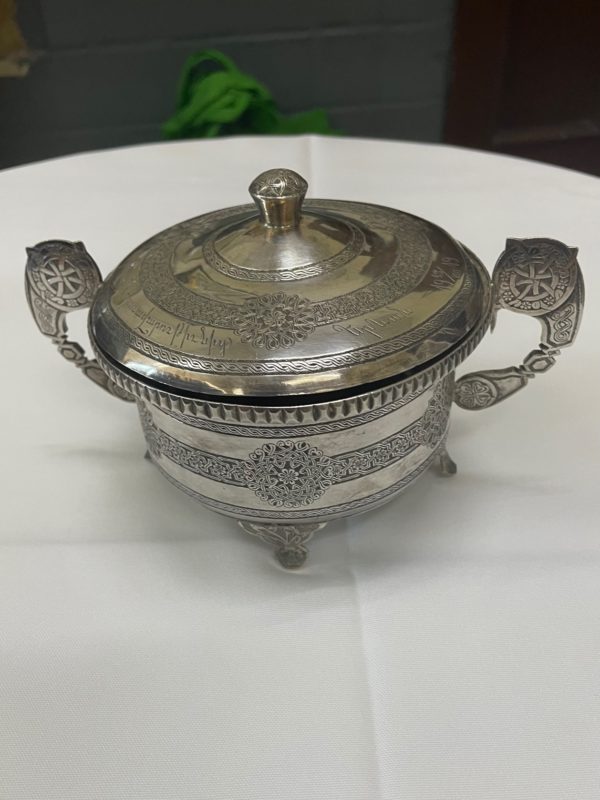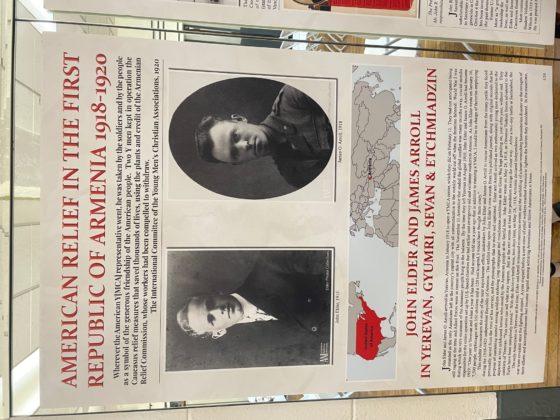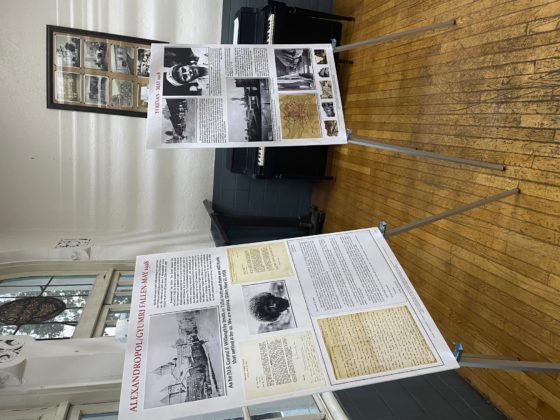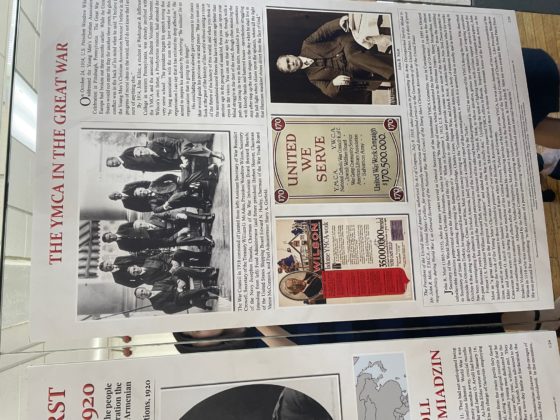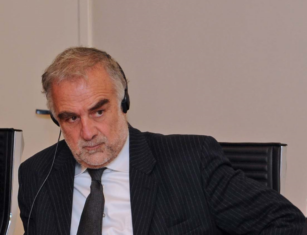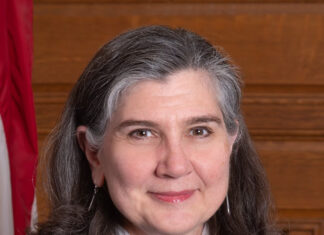GLENDALE, Calif. – The picture of an orphan refugee that became a horrifying testimony of the Armenian Genocide is from the collection of John Elder, a Young Men’s Christian Association (YMCA) missionary who served in Armenia during World War I. The Armenian Assembly of America and the YMCA of Glendale honored John Elder and James O. Arroll, another missionary with a reception and an exhibition at the YMCA on June 24. It showcased their work and life in Armenia during the horrors of war and famine, the formation of the first Armenian Republic in 1918 and their humanitarian efforts that saved thousands of lives.
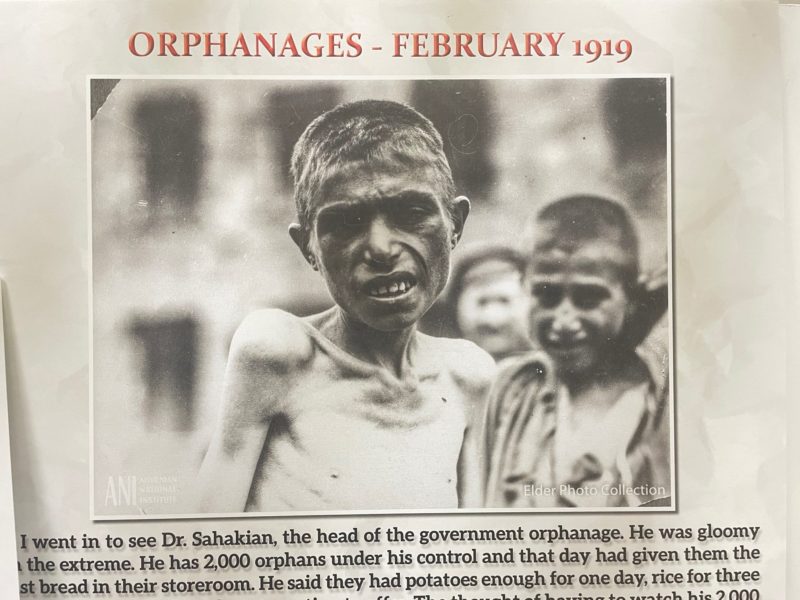
The exhibit organized by the Armenian National Institute (ANI) first was released digitally in Washington in 2018. Rouben Adalian, the director of ANI, tells me that years ago the institute received a precious donation, the tiny negatives of the photographs from John Elder’s wife Ruth, and only later, after immense research, continuous examination and communication with the latter’s children David and Louise Elder, was he able to assemble the whole picture by combining the stories from his diary and their memories. “Before creating the exhibition, ANI posted the pictures on its website. The Elders saw them and contacted us. I was looking for the information, and little by little we were able to find out what the pictures were telling about. It was not only a discovery but also a reminder to them [David and Louise Elder] about what their father had done,” relates Dr. Adalian.
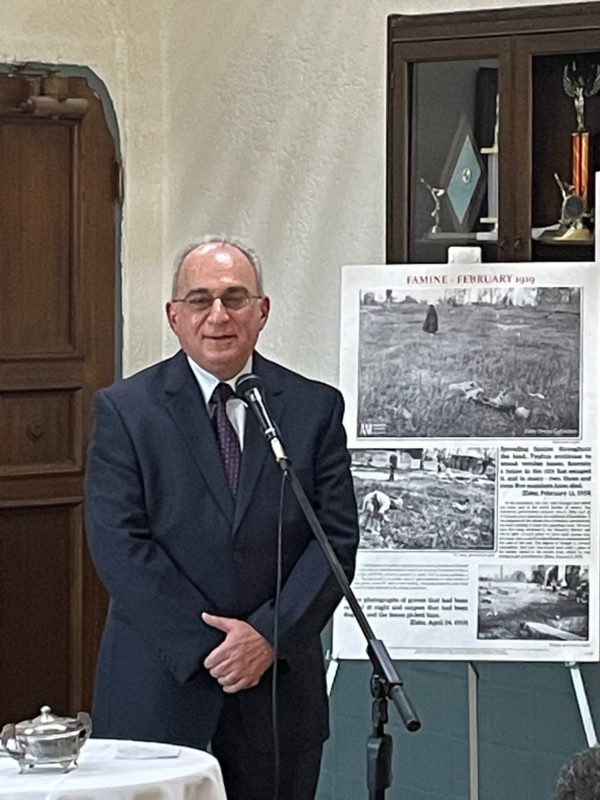
David and Louise Elder were the ones who received the honor and recognition for their late father at the reception at YMCA Glendale, traveling all the way from Wisconsin and Pennsylvania. Mihran Toumajan, the Western Region Director of the Armenian Assembly of America, in his speech emphasized the significance of the “American unsung heroes” who played an important role in saving Armenian people during the most difficult time of their history.
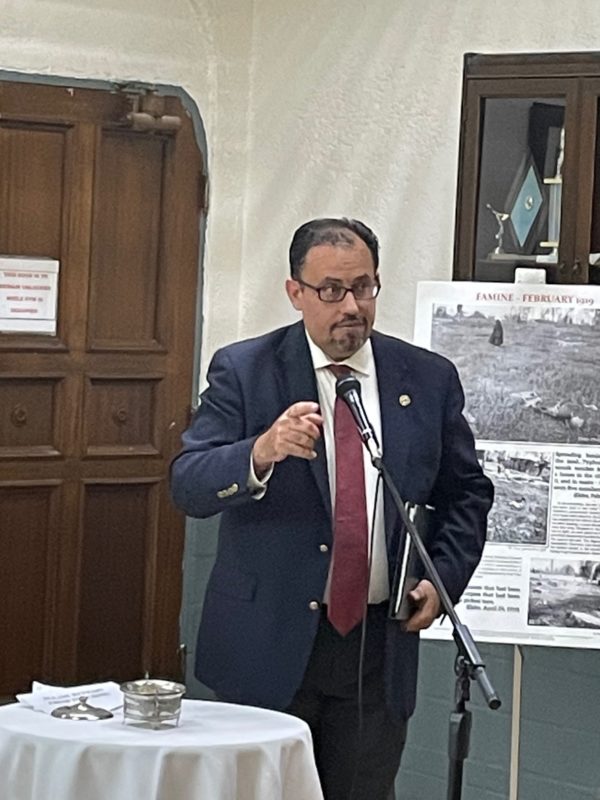
John Elder and Arroll traveled to Armenia in 1918 to open the first YMCA in Yerevan when they were only in their early twenties. They ended up witnessing and literally participating in the tremendous humanitarian work to overcome the devastation of war, starvation, sicknesses and the increasing number of the refugee camps in many cities of Armenia. In fact, these two young men were the only Americans who decided to stay and help while the others followed advice to leave the country and return to their safe homeland. “News comes today that Erzerum has fallen into Turkish hands. Capt. Gracey considers this very serious and disappointing…Consul Smith advises all Americans to leave at once, on a special train which may be the last. With considerable difficulty secured permission to stay for the present. Arrol staying also, and there are three members of the Gracey Mission. The next day the others all left, 24 in all” (Elder, March 14, 1918). This is an excerpt from John Elder’s diary that is a part of the exhibit.
John’s son David Elder remembers how his father came up with different ideas to pay people for food and services even when the funding from the US government stopped. People trusted him because of his dedication. In addition to all the stories presented in the exhibit, David remembers those that are cherished within his family circle with a smile. “He was telling a story that once, he went with other people to get grain, and they needed to pass a water tower. A man, an Azeri, was working at that tower and blocking their way to get the grain. At that time all the foreigners were given a gun to protect themselves. He never really used it,” David tells me. “Imagine the scene: my dad, not very tall, blond hair, blue eyes, very different from people in that region at that time.” Louise Elder joins our conversation with excitement. “Anyway,” David Elder continues, “the Azeri man didn’t want them go further to get the grain [for Armenian]. He was pretending that there was a problem with the water. My dad, very furious, came to the tower and said to the man ‘if it is not fixed in two minutes, there will be only one person at it’. The man got scared and let them go.”
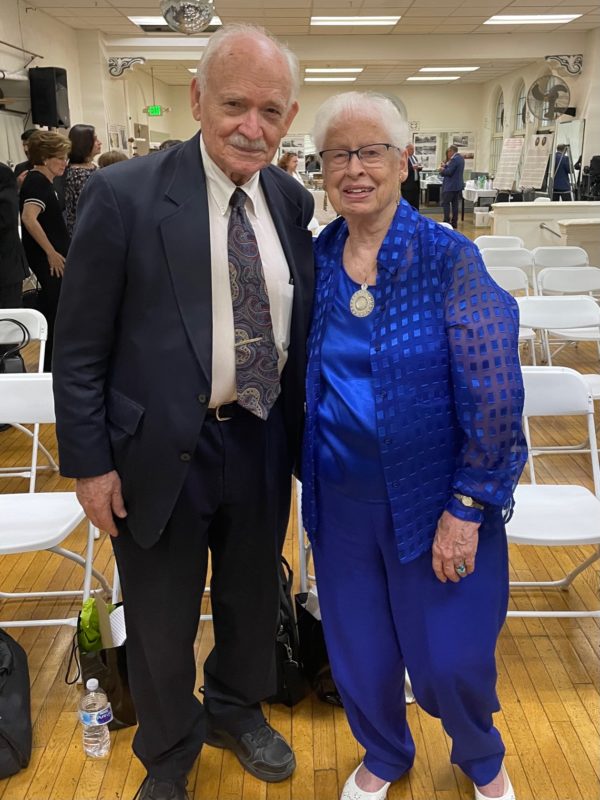
David also remembers how his father was telling them that he always felt an attachment to the children he helped and the managers who worked in Armenia with him. He cherished the connections that he kept during the years. And only by sharing stories from time to time was he able to cope with the trauma he endured as a volunteer.



